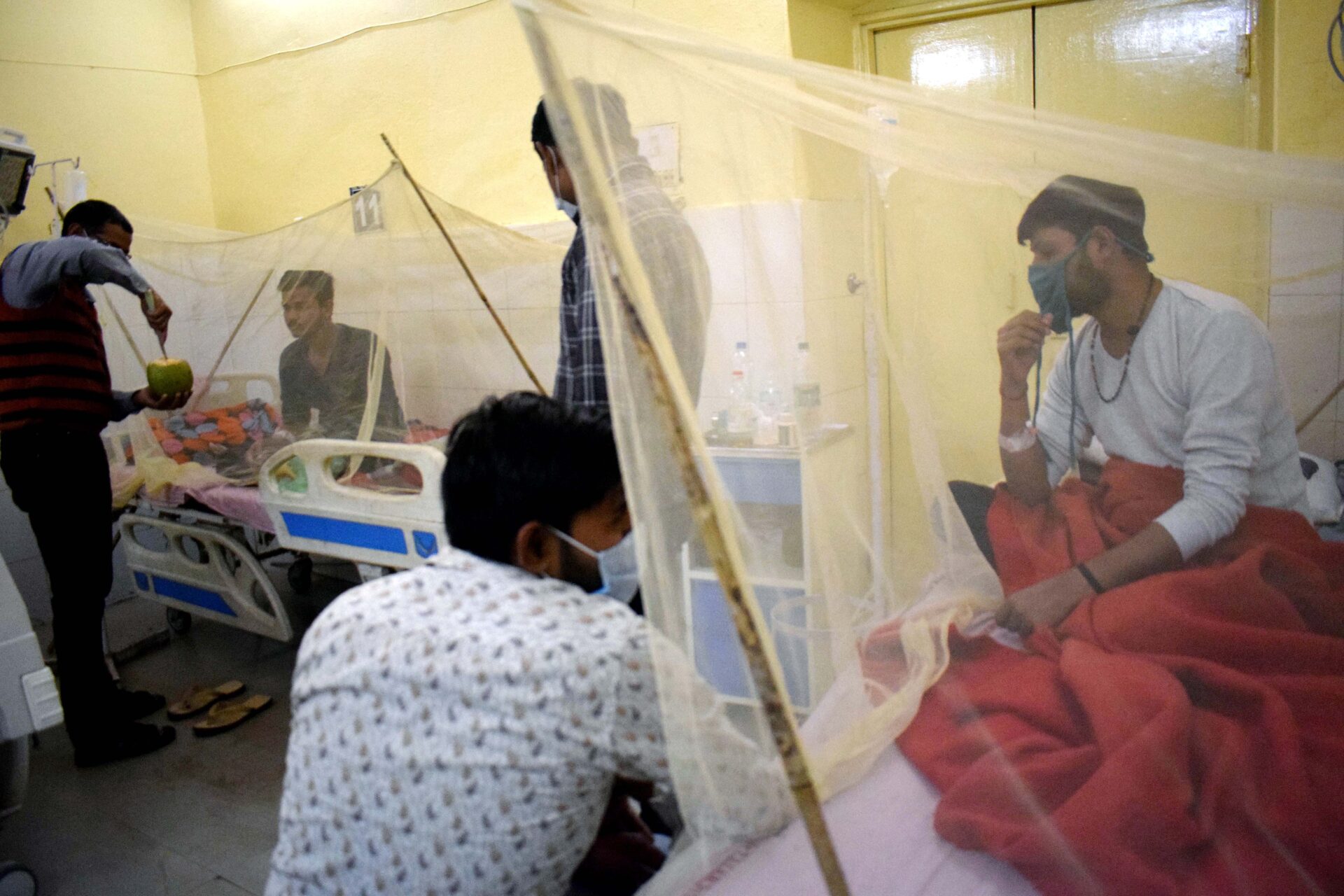‘MCD is taking steps to prevent dengue, malaria, chikungunya, and other vector-borne diseases in Delhi’.
New Delhi
Dengue cases have been continuously rising in the national capital, with Delhi reporting 105 new cases in the first week of August. The mosquito-borne disease report issued by the Municipal Corporation of Delhi (MCD) stated that the weekly count continues to double over the last three weeks, with Delhi reporting 56 cases and 24 cases, respectively, in the preceding two weekly cycles.
Currently, the number of dengue cases reported is the highest in the last six years. In comparison to the 348 dengue cases reported between 1 January and 5 August 2023, the city reported 174 cases in the corresponding period in 2022, 55 cases in 2021, 35 in 2020, 47 cases in 2019, and 64 cases in 2018. With the addition of 105 new cases, the overall count of dengue cases reported so far this year stands at 348.
The city witnessed its worst dengue outbreak in 2015 when 15,867 cases and 60 deaths were reported. The current count of dengue cases is the highest reported in the last six years. The health department of the Delhi government had conducted genome sequencing of the dengue virus and found that 19 out of 20 samples were of type 2 dengue, which is considered more dangerous.
On the other hand, MCD is taking all steps for the prevention of dengue, malaria, chikungunya, and other vector-borne diseases in Delhi. The MCD has accelerated the ward-level special drives and awareness campaigns in all the zones with the help of Domestic Breeding Checker (DBC) workers and field workers. Officials of the Public Health Department are also monitoring the situation from Ground Zero.
Officials of the MCD said that over 3,000 DBC workers and 2,000 field workers are working in mission mode for mosquito breeding detection and destruction in all zones. The department is regularly taking anti-larval measures in all the zones. This year, 222,69,649 house visits have been undertaken to detect mosquito breeding, and 1,42,206 houses were found complicit in mosquito breeding. Till now, a total of 6,61,709 houses have been sprayed with insecticide, and this number is set to increase in the future.
Officers further state that during the inspection, nearly 37% of mosquito breeding was found in coolers, 30% in decorative flower pots, 13% in overhead tanks, and nearly 11% each in open water tanks and construction sites. This disclosure is alarming, and MCD has exhorted citizens to check their coolers and flower pots in particular to help curb mosquito breeding in their houses. MCD has appealed to citizens to prevent water stagnation and installation in and around their houses so that mosquitoes cannot breed.
Special campaigns for anti-mosquito drives are being conducted to cover vulnerable areas like drains and water bodies, construction sites, parks and nurseries, and institutions like hospitals, schools, government offices, etc. MCD is coordinating with major stakeholders, i.e., DJB, Irrigation & Flood Control Department, P.W.D., C.P.W.D., D.T.C., Railways, Horticulture, DMRC, DDA, ASI, Police, Education, and Govt. Offices in Delhi, for prevention and control of mosquito breeding in and around their buildings.
MCD has also issued a toll-free number; for any assistance, citizens can dial the toll-free number 155305 or use the MCD311 application, apart from reaching their MCD zonal office.

